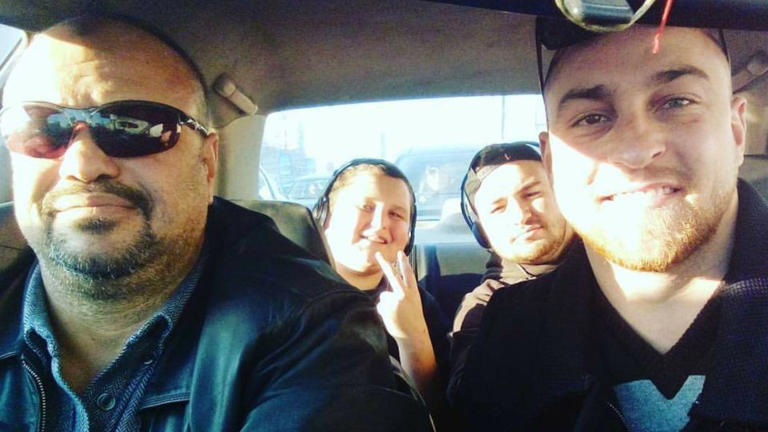American Family With Gaza Roots Grapples With Consequences of Israel’s Conflict with Hamas

In a heart-wrenching tale of resilience and determination, one Palestinian-American family with deep roots in besieged Gaza is experiencing the dire consequences of Israel’s war on Hamas. Wrapped in a red and white blanket inside a makeshift tent, 26-year-old Ahmed Arafat strives to maintain his composure amidst the relentless sounds of Israeli military drones echoing through the night sky. His story is a poignant testament to the struggles of the 2 million Palestinians trapped in the besieged territory, their lives disrupted by the ongoing conflict.
Last week, Arafat and his family were forced to flee their home in Gaza City’s al-Rimal neighborhood after receiving a chilling text message from the Israeli military. The message warned of an imminent airstrike on their five-story building, leaving Arafat with a harrowing decision: leave immediately or risk losing his wife, two young children, and other family members who resided there. He chose to heed the warning, saving his family but leaving their lives in turmoil.
The once vibrant al-Rimal district, a bustling business hub and social center of the city, now lies in ruins. Endless airstrikes have devastated homes, offices, schools, and places of worship, leaving countless casualties in their wake. Arafat describes the situation as “appalling,” with indiscriminate killings becoming a grim reality.
Since the conflict erupted, Arafat’s family has been constantly on the move, seeking refuge with friends and relatives. With each location becoming increasingly perilous, their ordeal continues, and there is no respite in sight. The constant bombings, day and night, have turned their lives into a nightmare.
The conflict escalated when Hamas launched a deadly operation in Israel on October 7, killing over 1,400 people and capturing nearly 200 hostages believed to be held in Gaza. In retaliation, Israel declared war on Hamas, imposing harsh measures on the territory, including cutting off electricity, fuel, and water. The United Nations has warned that this escalation is leading to a humanitarian catastrophe.
The Palestinian Ministry of Health reported that over 2,750 Palestinians have been killed in Gaza due to Israeli strikes, with more than 700 of them being children. Arafat calls this a “genocide” and decries the Israeli military’s strikes on civilian homes without warning, like the text message he received that may have saved his family’s lives.
For Arafat’s children, the trauma is unbearable. To comfort them, he likens the bombings to “volcanic sneezes,” but his 3-year-old son remains deeply affected by the constant fear and shaking caused by the attacks. As a father, he can only hope to keep his family safe and wonders if his children will ever have a chance to attend kindergarten.
Thousands of miles away in Memphis, Tennessee, Arafat’s mother, Anita Arafat, watches the news helplessly, praying for her son’s safety and the well-being of her extended family. The inability to communicate with her son due to unreliable electricity and phone reception compounds her anxiety.
Despite living in Gaza for over a decade and experiencing previous conflicts, Anita Arafat feels that this time is different. She believes Israel is attempting to erase Gaza from the map and is distraught by reports of entire families being killed in their homes. Her husband, Ashraf Arafat, spends hours glued to his phone, scouring for updates and fearing the worst.
Both parents hope for a ceasefire, desperate to reunite with their family and to live peacefully. They emphasize that the people of Gaza deserve to live without constant fear and danger.
Meanwhile, Ahmed Arafat is cautiously attempting to move his family to a safer location in the south of Gaza. He holds onto the hope that, as a U.S. citizen, he can eventually lead his family through the southern Rafah border into Egypt. Unfortunately, the diplomatic complexities and the destruction of a key roadway have stalled their ability to leave, leaving the family in limbo.
With a tent set up near a school, Arafat and his family are left to dream of crossing the border to safety. The uncertainty looms, as the timeline for their escape remains unknown. All they can do is wait and hope for a life where their children can grow up without the constant worry that has consumed their days and nights.



